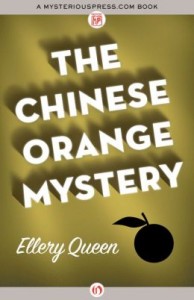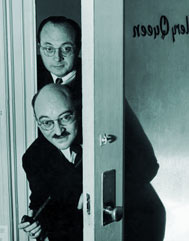Today we are pleased to Welcome Shrapnel Author and fellow West Virginia native Marie Manila to our website.
Rhodes Review: What would your ideal career be, if you couldn’t be an author?
Marie Manila: I’m going to cheat here because at the moment there is nothing else I’d rather be doing. Like most writers I’ve had to have a day job, usually teaching, to subsidize my writing. I’ve finally reached a point, at least for the next couple of years, where I’m earning a living from writing. I’m actually being paid to do what I love. Go figure. I wouldn’t trade that for anything.
Rhodes Review: Do you read reviews of your books? If so, do you pay any attention to them, or let them influence your writing?
Marie Manila: I do read reviews, and though I take constructive criticism very well, I try not to let critics’ voices set up camp in my head. Different readers respond to different types of stories and writing styles. Some people will be drawn to my work and some won’t. I set out to write books and tell stories that I would want to read, so the first reader I have to satisfy is myself. That said, I’m always trying to become a better writer. It takes time and a lot of practice to develop that writing muscle, and it will atrophy if I don’t keep at it.
Rhodes Review: Have you ever written anything that you thought would be controversial and found it wasn’t?
Marie Manila: I wasn’t sure how SHRAPNEL would be received since the main character, Bing Butler, is a bit rough around the edges. He’s a retired WWII veteran and a product of his time in that he wrestles with a variety of “isms”: sexism, racism, homophobia. I’ve had a few people approach me rather aggressively and ask why Bing needs to overcome his homophobia. As a politically progressive person it’s a no-brainer for me, but not everyone is of that opinion.
Rhodes Review: When did you first realize you wanted to be a writer, and how did you start writing?
Marie Manila: I was born in West Virginia but began my professional life as a graphic artist in Houston. I always loved to read, but in Texas I became a voracious reader. One day I finished reading a story in a magazine and I smugly (and naively) thought: “Well, I can write a story at least as good as this.” So I wrote one story, and another, and that’s all it took to send me down a completely different career path. Of course I then understood just how difficult it is to write a good short story, so I began taking classes to learn the craft, and I ultimately earned an MA in English and an MFA in creative writing. Not everyone needs a degree to become a competent writer, but that path worked well for me.
Rhodes Review: How long does it take you to write a book?
Marie Manila: I’ve only written three novels. The first is in a drawer, the second is SHRAPNEL, and the third, THE PATRON SAINT OF UGLY, will be published by Houghton Mifflin Harcourt in spring 2014. It took about five years per book. I was teaching off and on at Marshall University during that time, so I really could only write during the summers. I’m trying to quicken my pace with my current novel-in-progress, but I’ve learned that I can’t rush writing. It takes me awhile to really understand the characters and the world they live in.
Rhodes Review: What is your work schedule like when you’re writing?
Marie Manila: When I’m in the writing zone (which includes generating new material, researching, revising, editing, etc.) I treat it like a job, which it is. I get up in the morning, make coffee, and go to my office. I work until supper with breaks to walk the dog and eat lunch. If the writing is going well I’ll get back to it after supper. I usually write six days a week. I go a bit nutty if I write too many days in a row without a break. After I finish a big project I need a few weeks off. During that time I love to do physical work around the house: rip up carpet, paint walls, stain porches, plant vegetables. Writing is such a sedentary calling that it’s nice to flex those literal muscles. I also go a bit nutty if I take off too much time, and that’s when I know it’s time to get my butt back in the chair.
Rhodes Review: What would you say is your most interesting writing quirk?
Marie Manila: I am completely in love with my forthcoming novel THE PATRON SAINT OF UGLY, which includes a Sicilian grandmother who is a firm believer in the malocchio—the Evil Eye. She also believes in lucky amulets and talismans. As I was writing PATRON SAINT I began collecting my own talismans to scatter around my office. Not only did I hope the charms would give me the courage to write my heart out and do justice to the material, but I had such faith in the novel that I really wanted it to find a good home. Now that Houghton has bought it, I have to believe the talismans worked. I’ve even started collecting charms associated with the new novel I’m working on, and I love to let my eyes skim over them when I’m taking a break from the computer screen.
Rhodes Review: What do you like to do when you’re not writing?
Marie Manila: Aside from all that physical labor I mentioned above, I love to paint pictures. I’m not that skilled, but it’s nice to have another art to go to when the writing isn’t going well—especially when it’s an art I don’t feel I have to master. I can just have fun and relax. I’m a real foodie, too. I love a good meal with good friends and a nice glass of wine, which may be why good food—or lack thereof—is important to so many of my characters.
Rhodes Review: What does your family think of your writing?
Marie Manila: For the longest time I’m not sure they knew what I was up to. In the early years I just kept my head down and wrote-wrote-wrote like a maniac, short stories mainly. I was getting pieces published in journals around the country, but when I finally got a collection of stories published (STILL LIFE WITH PLUMS) I think my family and friends finally saw tangible proof of what I’d been up to all those year. For better or worse, there’s something about having a book in hand that adds legitimacy to the pursuit. Now my family and friends are my biggest fans whenever a book comes out. It’s cause for great celebration, and we need to celebrate those milestones that are so hard-won.
Rhodes Review: What was one of the most surprising things you learned in creating your books?
Marie Manila: I learned to trust my own writing process. In the early years I felt as if I needed to be in complete control of the writing, the story, the novel’s trajectory. Now I understand that there is magic in the process. When I’m wrestling with a writing problem I don’t fret the way I used to because I know that my subconscious is working on the solution, and if I’m patient the answer will present itself. The universe will conspire on my behalf if I just get out of the way.
Rhodes Review: Do you have any suggestions to help me become a better writer? If so, what are they?
Marie Manila: It’s important for all writers to understand that we are not what we write. We are not our novels or short stories or poems. When we remember that, we can be more objective about our work—about when it’s working and when it’s not—and we’ll be open to constructive criticism from those readers we trust. Our goal must always be to write the best prose or poetry we are capable of at the time and to always strive to mature as writers. We need to keep our egos in check for the good of the work. Separating ourselves from the work also protects us when critics give us harsh reviews. They aren’t criticizing us as human beings; they are merely criticizing the work.
Rhodes Review: What do you think makes a good story?
Marie Manila: I’m a fan of character-driven literary fiction, so my idea of what constitutes “good” stems from that. I love well-drawn, psychologically plumbed, believable characters who are put in difficult situations that they must overcome—or not overcome. To me, this transcends genre. The best sci-fi, horror, western, mystery, fantasy, etc. writers also create well-drawn characters I can root for. Nothing turns me off more than flat characters, unbelievable motivation, or characters used as mere props, particularly when those characters are women used as vehicles for sex or degradation.
Rhodes Review: What are your favorite authors/books?
Marie Manila: Here are a few seminal writers I return to again and again. They have taught me so much about craft, as well as about taking risks and infusing prose with humor and magic: Flannery O’Connor, Eudora Welty, Carson McCullers, Raymond Carver, Salman Rushdie, Gabriel Garcia Marquez, Isabel Allende, Sandra Cisneros.
Rhodes Review: If you could have dinner with one person, dead or alive, who would it be and why?
Marie Manila: I enjoy a good dinner party, so naturally I’d have to invite a few people. I would love to have supper with Flannery O’Connor, Eudora Welty, and Carson McCullers. I’d get them tipsy and just let them go on and on about writing…about being women writers in a time that was even less hospitable to women writers than it is now…about defying assigned gender roles…about issues of faith…about what it means to be southern in a world that often considers southerners dolts, and oh, so many things. I’ll need a lot of wine at this party.
Rhodes Review: What inspired you to write Shrapnel?
Marie Manila: I am from West Virginia, but my first post-college job was in Houston. I met so many men like Bing Butler, the main character, in Texas. There are men (and women) like him everywhere, but it was in Houston that I really began to notice people with these entrenched stereotypes about women, blacks, Latinos, gays, West Virginians. For me, writing is a way to understand the world, so I decided to slip into Bing’s skin for a while to see what made him tick. Ultimately I understood that so many of his “isms” were fear based. Men like Bing were once at the top of the food chain, but he’s losing dominance fast. When I made that discovery, I could then write him with compassion. SHRAPNEL really is a coming-of-age story in the nick of time for Bing.
Rhodes Review: What was your favorite part of Shrapnel?
Marie Manila: I love Bing’s growth. One by one, so many of his “isms” are challenged. We get to see him wrestle with his ideology as he learns that though he may not agree with everyone’s lifestyle, he must learn to respect that people have the right to a place in this world regardless of race, gender, social class, or whether he agrees with their lifestyle choices or not. He also learns that beneath all the labels are people he may have more in common with than he would have ever thought possible.
Rhodes Review: What was the hardest part to write in Shrapnel?
Marie Manila: I had to write Bing as a vulnerable soul in need of grace. It’s not always easy to pull the rug out from under your characters and watch them flounder and flail. It was difficult for me to watch Bing come to terms with his son’s death in Vietnam. Writing those scenes when Bing imagines his son’s last moments was tough because I needed to handle it just right, but also in a peripheral way, which is how Bing would have approached it. I needed to honor all the soldiers who died in Vietnam.
Rhodes Review: What do you wish was different about Shrapnel?
Marie Manila: What I now understand is that people often look at the title and cover and expect it to be a book about war. Though I love both the title and cover, I see how together they misrepresent the book a bit. The novel is a family saga about the effects of war on three generations of the Butler family. It’s about the emotional shrapnel this family has been carrying for decades. In general terms, I’ve learned something from every book I’ve written. My first novel-in-a-drawer was a bit experimental. I played with time and had multiple points-of-view. In SHRAPNEL, I set out to write a straight-forward story so I could learn about structuring a novel. It was also in SHRAPNEL that I began tiptoeing into magical realism with the inclusion of the “ghosts” of Bing’s dead wife and son. To me, the “ghosts” are manifestations of Bing’s grief, but including them opened the door for the magic that appears in THE PATRON SAINT OF UGLY.
Rhodes Review: Was familiarity with the locations a help or hindrance, i.e. did you find yourself too critical in your descriptions of locations?
Marie Manila: I grew up in Huntington, West Virginia, and I worked in Houston, the two settings for Shrapnel. I’m not opposed to bending the landscape to suit my needs. It is fiction, after all, and I need to do what’s best for the world of the novel even if it differs somewhat from the reality of the actual place. It’s the big picture that matters. I paint milieu with a broader brush than some. It’s the essence of place I’m going for.
About the Author:
 West Virginia native Marie Manilla is a graduate of the Iowa Writers’ Workshop. Her fiction has appeared in the Chicago Tribune, Mississippi Review, Prairie Schooner, Calyx, Portland Review, NewSouth, South Writ Large, and other journals. Her novel SHRAPNEL (River City Publishing, 2012) was selected by author Daniel Wallace as winner of the Fred Bonnie Award for Best First Novel. Her collection of stories, STILL LIFE WITH PLUMS (West Virginia University Press, 2010), was a finalist for the Weatherford Award and ForeWord Reviews Book of the Year. Her novel THE PATRON SAINT OF UGLY will be published by Houghton Mifflin Harcourt in spring 2014. Learn more at www.mariemanilla.com.
West Virginia native Marie Manilla is a graduate of the Iowa Writers’ Workshop. Her fiction has appeared in the Chicago Tribune, Mississippi Review, Prairie Schooner, Calyx, Portland Review, NewSouth, South Writ Large, and other journals. Her novel SHRAPNEL (River City Publishing, 2012) was selected by author Daniel Wallace as winner of the Fred Bonnie Award for Best First Novel. Her collection of stories, STILL LIFE WITH PLUMS (West Virginia University Press, 2010), was a finalist for the Weatherford Award and ForeWord Reviews Book of the Year. Her novel THE PATRON SAINT OF UGLY will be published by Houghton Mifflin Harcourt in spring 2014. Learn more at www.mariemanilla.com.

 West Virginia native Marie Manilla is a graduate of the Iowa Writers’ Workshop. Her fiction has appeared in the Chicago Tribune, Mississippi Review, Prairie Schooner, Calyx, Portland Review, NewSouth, South Writ Large, and other journals. Her novel SHRAPNEL (River City Publishing, 2012) was selected by author Daniel Wallace as winner of the Fred Bonnie Award for Best First Novel. Her collection of stories, STILL LIFE WITH PLUMS (West Virginia University Press, 2010), was a finalist for the Weatherford Award and ForeWord Reviews Book of the Year. Her novel THE PATRON SAINT OF UGLY will be published by Houghton Mifflin Harcourt in spring 2014. Learn more at www.mariemanilla.com.
West Virginia native Marie Manilla is a graduate of the Iowa Writers’ Workshop. Her fiction has appeared in the Chicago Tribune, Mississippi Review, Prairie Schooner, Calyx, Portland Review, NewSouth, South Writ Large, and other journals. Her novel SHRAPNEL (River City Publishing, 2012) was selected by author Daniel Wallace as winner of the Fred Bonnie Award for Best First Novel. Her collection of stories, STILL LIFE WITH PLUMS (West Virginia University Press, 2010), was a finalist for the Weatherford Award and ForeWord Reviews Book of the Year. Her novel THE PATRON SAINT OF UGLY will be published by Houghton Mifflin Harcourt in spring 2014. Learn more at www.mariemanilla.com.





 Like
Like

 Ellery Queen was a pen name created and shared by two cousins, Frederic Dannay (1905–1982) and Manfred B. Lee (1905–1971), as well as the name of their most famous detective. Born in Brooklyn, they spent forty-two years writing, editing, and anthologizing under the name, gaining a reputation as the foremost American authors of the Golden Age “fair play” mystery. Although eventually famous on television and radio, Queen’s first appearance came in 1928, when the cousins won a mystery-writing contest with the book that would eventually be published as The Roman Hat Mystery.
Ellery Queen was a pen name created and shared by two cousins, Frederic Dannay (1905–1982) and Manfred B. Lee (1905–1971), as well as the name of their most famous detective. Born in Brooklyn, they spent forty-two years writing, editing, and anthologizing under the name, gaining a reputation as the foremost American authors of the Golden Age “fair play” mystery. Although eventually famous on television and radio, Queen’s first appearance came in 1928, when the cousins won a mystery-writing contest with the book that would eventually be published as The Roman Hat Mystery.